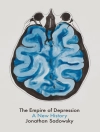In A History of Modern Psychology in Context, the authors resist the traditional storylines of great achievements by eminent people, or schools of thought that rise and fall in the wake of scientific progress. Instead, psychology is portrayed as a network of scientific and professional practices embedded in specific contexts. The narrative is informed by three key concepts–indigenization, reflexivity, and social constructionism–and by the fascinating interplay between disciplinary Psychology and everyday psychology.
Table of Content
CHAPTER 1 ORIGINS OF A SCIENCE OF MIND 3
CHAPTER 2 EVERYDAY LIFE AND PSYCHOLOGICAL PRACTICES 24
CHAPTER 3 SUBJECT MATTER, METHODS, AND THE MAKING OF A NEW SCIENCE 42
CHAPTER 4 FROM PERIPHERY TO CENTER: CREATING AN AMERICAN PSYCHOLOGY 71
CHAPTER 5 THE PRACTICE OF PSYCHOLOGY AT THE INTERFACEWITH MEDICINE 94
CHAPTER 6 PSYCHOLOGISTS AS TESTERS: APPLYING PSYCHOLOGY, ORDERING SOCIETY 118
CHAPTER 7 AMERICAN PSYCHOLOGICAL SCIENCE AND PRACTICE BETWEEN THE WORLD WARS 148
CHAPTER 8 PSYCHOLOGY IN EUROPE BETWEEN THE WORLD WARS 178
CHAPTER 9 THE GOLDEN AGE OF AMERICAN PSYCHOLOGY 208
CHAPTER 10 INTERNATIONALIZATION AND INDIGENIZATION OF PSYCHOLOGY AFTERWORLD WAR II 238
CHAPTER 11 FEMINISM AND AMERICAN PSYCHOLOGY: THE SCIENCE AND POLITICS OF GENDER 262
CHAPTER 12 INCLUSIVENESS, IDENTITY, AND CONFLICT IN LATE 20TH-CENTURY AMERICAN PSYCHOLOGY 288
CHAPTER 13 BRAIN, BEHAVIOR, AND COGNITION SINCE 1945 310
About the author
Wade E. Pickren, Ph D, is the Historian of the American
Psychological Association. For eight years, Wade was both APA
Historian and Director of Archives. He is currently on the
psychology faculty at Ryerson University in Toronto and continues
to serve as APA Historian.
Alexandra Rutherford, Ph D, is Associate Professor of
psychology in the History and Theory of Psychology Graduate Program
at York University. She is the official historian of the Society
for the Psychological Study of Social Issues and the Heritage Chair
of the Society for the Psychology of Women.












